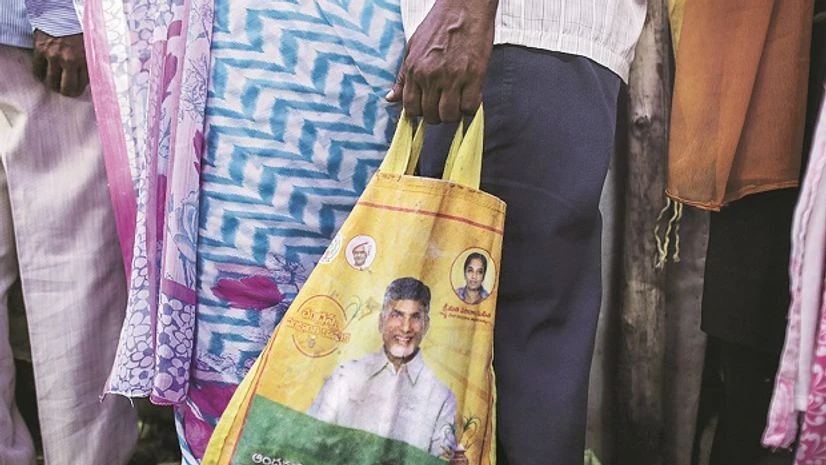Madhya Pradesh may have taken one jump ahead of the other states in switching over to the January-December fiscal year, but Andhra Pradesh too is preparing to follow in its footsteps next year.
Andhra Pradesh Chief Minister N Chandrababu Naidu, whose Telugu Desam Party (TDP) is part of the BJP-led National Democratic Alliance (NDA), has been at the forefront of supporting the Centre’s initiatives on many fronts, including the recent demonetisation drive.
“The financial year has to be uniform in the country because the states will receive central grants as well as their shares in central taxes, which are calculated and released in specific financial years. Therefore, states will have to align their fiscal years to that of the Centre. Andhra Pradesh is ready to make January-December its fiscal year whenever the government of India wants to make the switchover,” a finance ministry official said.
The April-March financial year is a remnant of the British rule and Prime Minister Narendra Modi had suggested a January-December fiscal year during the NITI Aayog’s governing council meeting on April 23.
Gujarat, which normally takes the lead in implementing any suggestion from the Centre, is trying to find out how Madhya Pradesh is going to bring about the change.
Also Read
“While the matter was discussed briefly in the Cabinet meeting (on Wednesday), no decision has been taken. We are trying to find out how Madhya Pradesh is going to go about it. As of now, there are no steps being taken in this direction,” a senior bureaucrat in Gujarat government said. The government is also believed to be apprehensive about the burden such a decision will put on the bureaucracy. “The alignment within the government machinery with respect to GST implementation is yet to be seen. It is only after that that one could have a better idea on how to go about the shift in the financial year,” said another bureaucrat. The Rajasthan government, which too held its Cabinet meeting on Wednesday, did not deliberate on the issue of advancing the Budget dates.
The officials in the state finance department said they had not received any indication from Chief Minister Vasundhara Raje, who is the finance minister too.
“It would be too early to guess whether the state wants to change the financial year. It would be a political call and we have no problem in implementing the orders,” a state government official said.
The issue has not come up for official discussion in the Chhattisgarh government. The village contact programme is on in the state, which has prevented the state authorities from focusing on the issue.
Chief Minister Raman Singh is touring the state under the “Gram Suraj Abhiyan”, which will end on May 24. The issue of changing the fiscal cycle is likely to come up for discussion only after the campaign concludes. A top state government official said the possibility of the state taking any decision on its own was bleak. Rather, the state government would wait for the Centre to make the first move. Non-BJP states, of course, are not in a rush. A senior administrative official of the Tamil Nadu government's finance department said that as of now, there were no plans to change the financial year. It would depend upon high-level decisions and what the Centre's move is.
"I don't feel there is any benefit from changing the financial year. You may have to advance the accounting work," said an official, adding that if the Centre asked the states to shift, “we don't have a choice but to do so”.
Top officials in West Bengal said there was no question of considering the proposal now.
While Odisha is yet to take a call, it is not in favour of an immediate shift. “The shift to the new fiscal cycle requires an overhaul of the tax and accounting procedures. The transition needs to begin with the government of India, allowing the states the time to shift to the new cycle,” said a senior state government official. The step to shift to the proposed new fiscal cycle is welcome but the Centre taking the lead makes sense as it would allow the states to align themselves with the new practice, according to him. The official suggested that key financial institutions like the Reserve Bank of India (RBI) and the nationalised banks could make the shift first. States unilaterally shifting to the proposed new fiscal cycle would find the going difficult, he felt.
Odisha feels only the construction and infrastructure sectors stand to gain from this. “Both these sectors will gain since work orders and implementation take a hit due to the monsoon season, which follows financial appropriation. A provision for early budgeting, say, in November or December can speed up work,” the official said.
Also, the changed timeframe for budgeting would help farmers and agricultural operations, he said.
The National Capital Territory of Delhi, ruled by the Aam Aadmi Party, is now embroiled in controversies regarding its leadership following the poll debacle in the recently held municipal elections and has not held its cabinet meeting to discuss the issue. Officials, however, feel that it would be a good idea to advance the budget dates. "I don't think there should be any problem for the Delhi government to present its Budget in January. There would be some problem in the first year as the data for the last quarter would not be available, but there would not be any problem from the second year,” said Alok Swarup, who retired as special secretary to the Delhi government’s finance department last month.
With inputs from B Dasarath Reddy, Jayajit Dash, Sahil Makkar, Vinay Umarji, T E Narasimhan & Avishek Rakshit

)
